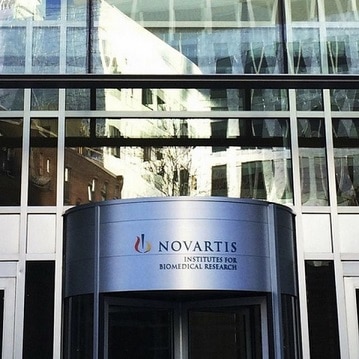
Novartis acquires Admune Therapeutics
pharmafile | October 21, 2015 | News story | Research and Development | Admune Therapeutics, Cancer, Novartis, Palobiofarma, immunotherapy
Novartis is broadening its portfolio of cancer immunotherapies with the acquisition of Admune Therapeutics, and signing licensing agreements with Palobiofarma and XOMA Corporation.
Novartis revealed it primarily sought the acquisition of Admune, a clinical-stage biotech company focused on the development and delivery of cytokine therapy drugs for cancer, for the company’s IL-15 agonist program, currently in Phase I clinical trials for metastatic cancer. The fee is not being disclosed.
Novartis also signed a $15 million licensing agreement with Palobiofarma. The company, based at Barcelona’s science park, focuses on the discovery and development of new drugs based on the modulation of adenosine receptors. With the new licensing agreement, Novartis gains development and commercialisation rights to PBF-509, an adenosine receptor antagonist currently in Phase I clinical trials for non-small cell lung cancer (NSCLC).
Novartis also made an additional licensing deal with XOMA Corporation, for the development and commercialisation rights to the Berkeley, California-based company’s TGF-beta antibody programs. Novartis says all three programs will be explored as monotherapies and in combination with therapies in immuno-oncology and targeted therapy portfolios.
The Basel-based company has quickly expanded its immune-oncology pipeline in recent years, and currently has four candidates currently in clinical trials. An additional five agents are expected to enter the clinic by the end of 2016, including novel checkpoint inhibitors, chimeric antigen receptor T-cell (CART) technology, myeloid cell targeting agents, and STING agonists.
Currently Novartis’ myeloid cell targeting program (MCS-110) and checkpoint inhibitors targeting PD-1 (PDR001), LAG-3 (LAG525), are in Phase I clinical trials, while the CAR-T program (CTL-019) is in Phase II clinical trials. The anti-TIM-3 program (MGB453) is expected to enter the clinic by the end of 2015 and a STING agonist (MIW815), gained through its collaboration with Aduro Biotech, and a GITR agonist are progressing toward first-in-human clinical trials in 2016.
“The first wave of immuno-oncology therapies has demonstrated the impact this approach can have in treating certain types of tumours,” says Mark Fishman, president of the Novartis Institutes for BioMedical Research. “To realise its full potential requires exploration of the complex system of biological pathways in the tumour microenvironment with agents that can stimulate the immune system to attack a wider variety of tumours.”
Joel Levy
Related Content

Novartis shares new data about Fabhalta for IgAN treatment
Novartis has announced new results from a pre-specified interim analysis of its phase 3 APPLAUSE-IgAN …

Geneos Therapeutics shares data from phase 1/2 trial for cancer vaccine
Geneos Therapeutics has announced that it has published positive safety, immunogenicity and efficacy data from …

Curve Therapeutics’ CSO publishes research on HIF inhibition for cancer treatment
Curve Therapeutics has announced that its chief scientific officer, Professor Ali Tavassoli has published research …








